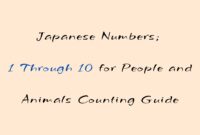Greeting someone in the morning is fundamental in daily communication, even in
Japanese. Saying “good morning” correctly can leave a positive impression when
interacting with native speakers. This article will cover how to say “good
morning” in Japanese and provide a short conversation example to help you
understand better.

How to Say “Good Morning” in Japanese
In Japanese, “good morning” is said as おはよう (ohayou) when speaking to
friends or younger people. When speaking to someone older or in a formal
situation, add ございます (gozaimasu), making it おはようございます (ohayou
gozaimasu). Using the correct level of politeness is crucial in Japanese
culture.
The Importance of Morning Greetings in Japanese Culture
A morning greeting carries deeper significance in Japan. It’s not just a
formality but a way to show respect and goodwill towards others. Using the
appropriate greeting shows that you understand and respect Japanese culture,
which can help foster good relationships.
Example Conversation in Japanese
Here is a short conversation example that demonstrates the use of “good
morning” in different contexts:
Informal Situation:
A: おはよう、たけし!
(Ohayou, Takeshi!)
Good morning, Takeshi!
B: おはよう、ゆうか!元気?
(Ohayou, Yuuka! Genki?)
Good morning, Yuuka! How are you?
Formal Situation:
A: おはようございます、田中さん。
(Ohayou gozaimasu, Tanaka-san.)
Good morning, Mr./Ms. Tanaka.
B: おはようございます、鈴木さん。早いですね。
(Ohayou gozaimasu, Suzuki-san.
Hayai desu ne.)
Good morning, Mr./Ms. Suzuki. You’re early, aren’t you?
In the conversation examples above, you can see the difference between using
“good morning” casually and formally. It’s important to match your level of
politeness with your interlocutor.
Understanding and using common greetings like “good morning” in Japanese is
the first step to communicating better in this language. By learning the
correct usage and context, you will be more proficient in Japanese and more
appreciated when visiting or interacting with Japanese people. Hopefully, this
brief guide will be helpful as you learn Japanese and gain a deeper
understanding of its culture. Happy learning, and おはようございます!


